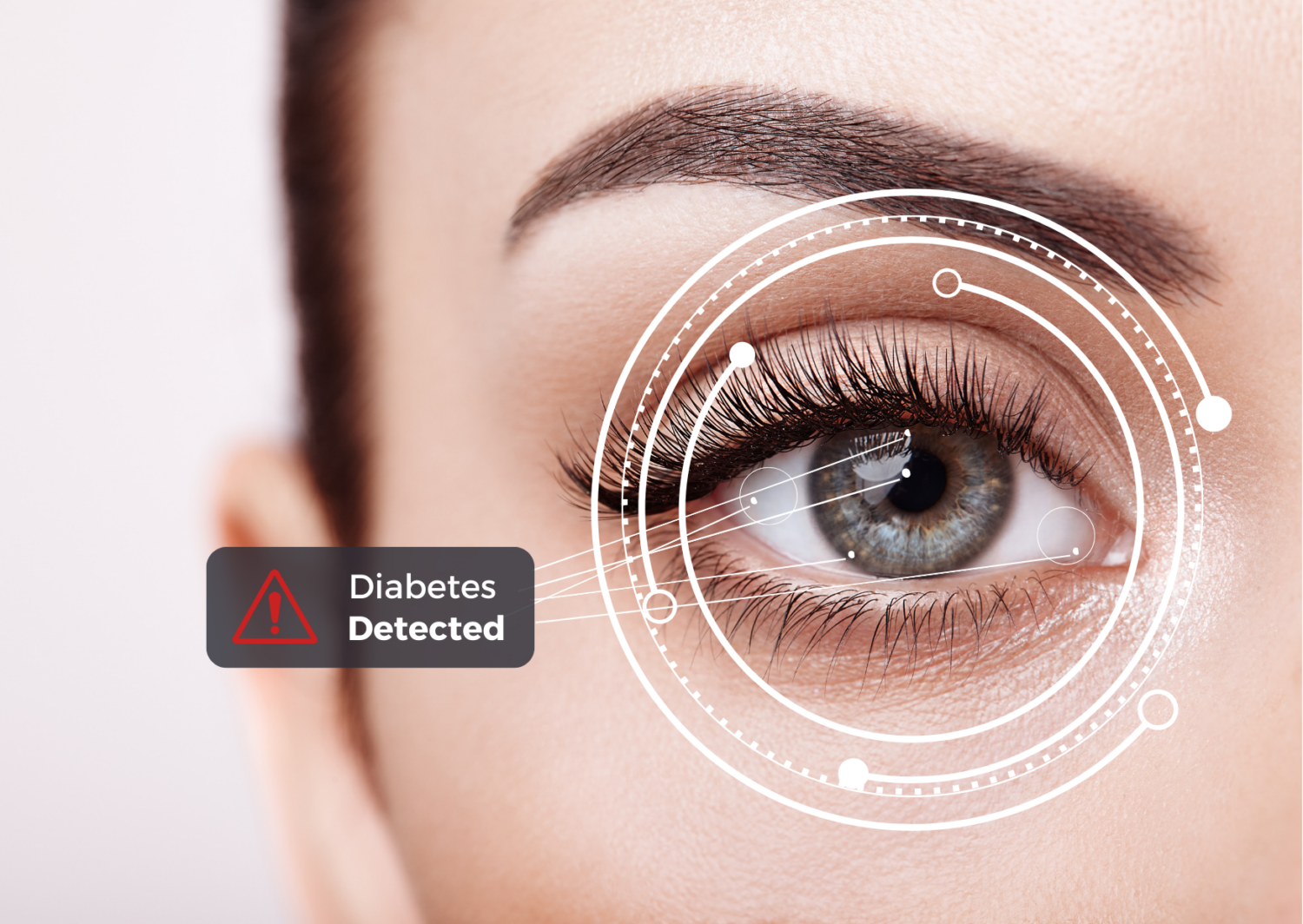
Recent advancements in AI have demonstrated that AI can accurately detect diabetes through the analysis of retinal images that retina experts would consider healthy. To better understand this achievement, it is worth taking a step back to understand the context and magnitude of the achievement.
Diabetes is a chronic health condition that affects the body’s ability to metabolize glucose, resulting in high levels of sugars in the bloodstream. Over time, elevated blood sugar levels can lead to serious health problems, including heart disease, kidney failure, vision loss, and even death. Furthermore, the longer it takes for patients to be diagnosed and treated, the more likely they are to develop such irreversible complications, therefore, early diagnosis even when a patient is asymptomatic is critical to maintaining overall health and preventing adverse outcomes.
Despite the high prevalence of diabetes, 23%-27% of all diabetic adults in the United States remain undiagnosed. The under-diagnosis of diabetes can be attributed to several factors. First and foremost is the lack of regular health checkups. Underserved populations with limited access to basic healthcare are far more likely to go undiagnosed, simply because they lack basic access to screening and diagnostic services. Sadly, they are also at higher risk of developing diabetes to begin with because of the increased prevalence of obesity. Another factor is the lack of public awareness regarding the symptoms of diabetes; those who aren’t aware of the symptoms are less likely to see a doctor when they appear.
Fasting glucose and glycated hemoglobin – also known as HbA1c – blood tests are the most established and accepted tools for diagnosing diabetes. Nevertheless, eye doctors are often the first to detect diabetes as a coincidental finding in visits performed for other reasons. The eye doctor typically observes signs of diabetic retinopathy – a common diabetes complication – and as a result suspects that the patient is diabetic, referring the patient to further exams that lead to a diabetes diagnosis. Nevertheless, this means that eye doctors who detect signs of diabetes diagnose a disease that has been present for a long time – long enough for diabetes complications to manifest. Additional examples where complications of diabetes can be detected and lead to diabetes diagnosis include periodontal disease detected by dentists and foot and ankle disease detected by podiatrists.
A groundbreaking artificial intelligence (AI) model recently developed by AEYE Health demonstrates an ability to accurately diagnose patients with diabetes from retinal images that are otherwise considered free from any diabetes-related complications. In other words, the AI is able to detect signs of diabetes in images that retinal experts deemed healthy. Retina specialists can generally diagnose diabetes from retinal images if the complications associated with diabetes are visible in the images. The AI algorithm, however, can diagnose diabetes from otherwise healthy retinas, which generally means an earlier stage of diabetes and provides an opportunity to receive proper treatment and mitigate complications before they arise.
Most AI models are developed to perform the same tasks as doctors – i.e. try to replicate what doctors look for when analyzing images. But in the case of the AI developed by AEYE Health, the AI is trained to perform tasks that are outside the common realm of doctors’ abilities.
This is revolutionary for a number of reasons, the most important of which is enabling the early diagnosis of diabetes and reducing the number of undiagnosed diabetics. Deploying this AI at pharmacies and community clinics can help people test themselves quickly, cheaply and without drawing blood. No less important is the fact that AI is now able to expand on the diagnostic capabilities currently available. Diabetes can be detected from retinal photos even though retina specialists are not able to see the indicators of the disease.
About Dr. Zack Dvey-Aharon, PhD

Dr Zack Dvey-Aharon, Ph.D. is an international AI expert, serial entrepreneur, and the co-founder and CEO of AEYE Health, a company with a mission to develop accurate, practical, and accessible AI solutions to diagnose a broad range of diseases from retinal images. Earlier this year, AEYE Health published the results of its first pivotal clinical study which focused on the diagnosis of diabetic retinopathy.
